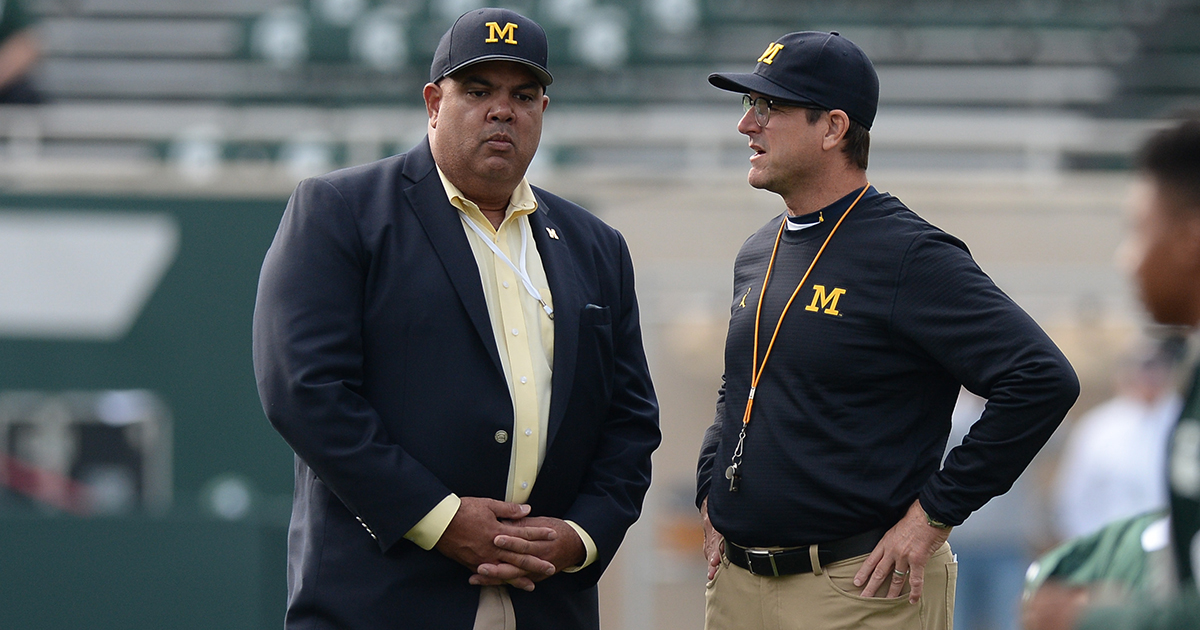The University of Michigan formally responded to the Big Ten on Wednesday after the conference notified the school of an investigation into the leagues sportsmanship policy earlier this week.

Michigan and its representatives have maintained both their innocence and right to due process throughout the investigation.
Thanks to Dan Wetzel and Ross Dellenger of Yahoo Sports, we now know exactly what the university’s letter in response to the conference entailed.
Michigan Fervently Defends Right To Due Process In Letter To Big Ten
Wolverines athletic director Warde Manuel was clear to inform the conference that the university does not believe the conference can act before a full investigation is complete.
“…any disciplinary action in this matter at this time is procedurally improper, premature, and unwarranted. But I also must emphasize that the NCAA investigation is ongoing and we have not yet had an opportunity to review almost any of the evidence or to meaningfully respond. And NCAA rules limit Michigan’s ability to conduct its own investigation. Our ability to state our position at this time is therefore inherently limited, and Michigan reserves the right to make additional statements of position as the investigation develops.”
Manuel also challenged the authority of Big Ten commissioner Tony Petitti impose any punishment on head coach Jim Harbaugh.
“Disciplinary action premised on unadjudicated rule violations is a breach of the Big Ten Conference Handbook. And any disciplinary action against Coach Jim Harbaugh on this record would exceed the Commissioner’s authority under the Sportsmanship Policy and be factually unwarranted on the current record…The Commissioner also lacks authority under Agreement 10 to punish Coach Harbaugh. Imposing disciplinary action would be a clear breach of the (Big Ten Conference) Handbook.’

Finally, the letter states that any punishment levied on the Wolverines could well open a Pandora’s box.
“Moreover, the Conference should act cautiously when setting the precedent given the reality that in-person scouting, collusion among opponents, and other questionable practices may well be far more prevalent than believed.
If Stalions coordinating with third parties to perform in-person scouting on opponents violates the scouting rule, then it appears that other teams may also be violating the rule by employing each others’ employees to scout their opponents in person. Indeed, Exhibit 2, which Michigan received from a former coach at Purdue, is another example of a Conference opponent successfully decoding Michigan’s signals with alarming success. Unlike Exhibit 1, Michigan does not know what methods Purdue used to steal these signs. The current investigation may call for a broader investigation and reckoning on how teams across the conference and NCAA engage in signal decoding.”
It remains to be seen whether the Big Ten will take Michigan’s claims into account. But one thing is certain, the Wolverines aren’t going down without a fight.

